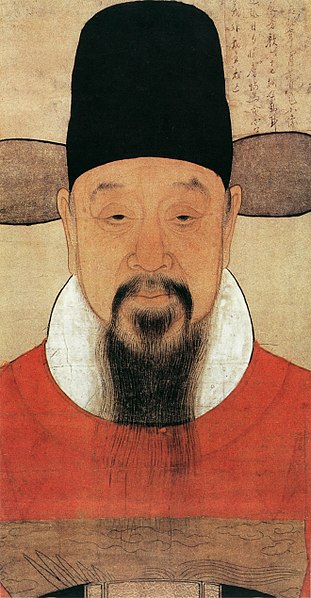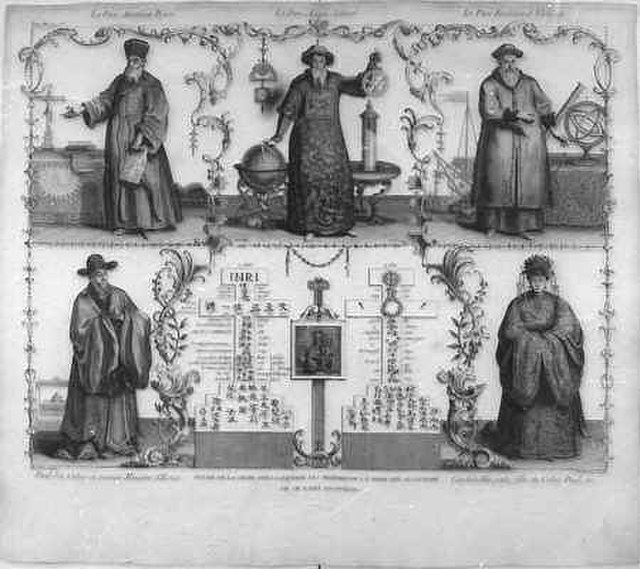Xu Guangqi or Hsü Kuang-ch'i, also known by his baptismal name Paul, was a Chinese agronomist, astronomer, mathematician, politician, and writer during the Ming dynasty. Xu was appointed by the Chinese Emperor in 1629 to be the leader of the Shixian calendar reform, which he embarked on with the assistance of Jesuits. Xu was a colleague and collaborator of the Italian Jesuits Matteo Ricci and Sabatino de Ursis and assisted their translation of several classic Western texts into Chinese, including part of Euclid's Elements. He was also the author of the Nong Zheng Quan Shu, a treatise on agriculture. He was one of the "Three Pillars of Chinese Catholicism"; the Roman Catholic Church considers him a Servant of God. On April 15, 2011, Vatican spokesman Federico Lombardi announced the beatification of Xu Guangqi.
Portrait of Xu Guangqi
Xu Guangqi with Matteo Ricci (left) From Athanasius Kircher's China Illustrata, 1667
Xu Guangqi's work on military matters Mr Xu's Amateur Observations
Paul Xu (bottom left) and his granddaughter Candida (bottom right), along with Ricci, Schall, and Verbiest (top row)
Matteo Ricci was an Italian Jesuit priest and one of the founding figures of the Jesuit China missions. He created the Kunyu Wanguo Quantu, a 1602 map of the world written in Chinese characters. In 2022, the Apostolic See declared its recognition of Ricci's heroic virtues, thereby bestowing upon him the honorific of Venerable.
1610 Chinese portrait of Ricci
The statue of Ricci in downtown Macao, unveiled on 7 August 2010, the anniversary of his arrival on the island
Ricci with Xu Guangqi (right), from Athanasius Kircher's China Illustrata, 1667
Matteo Ricci's way from Macau to Beijing







